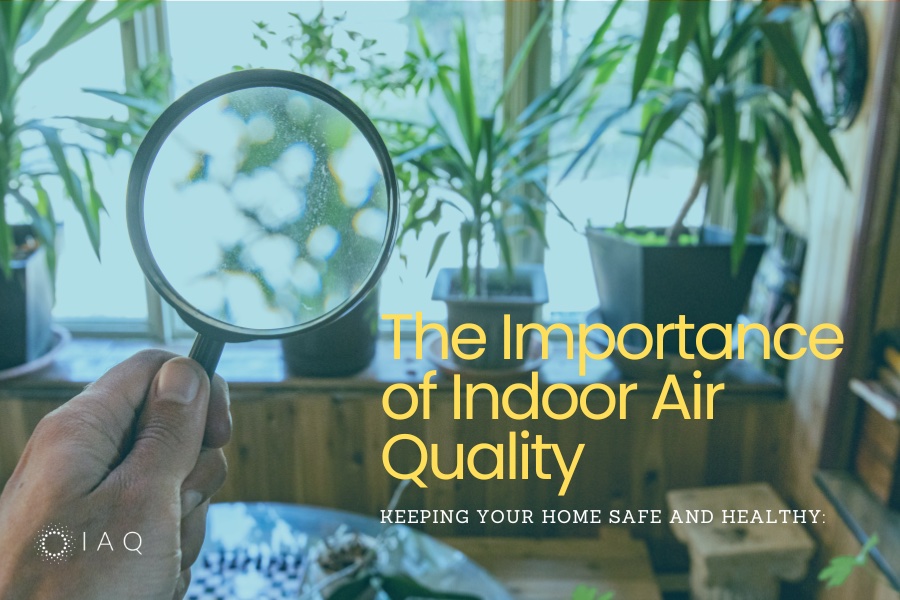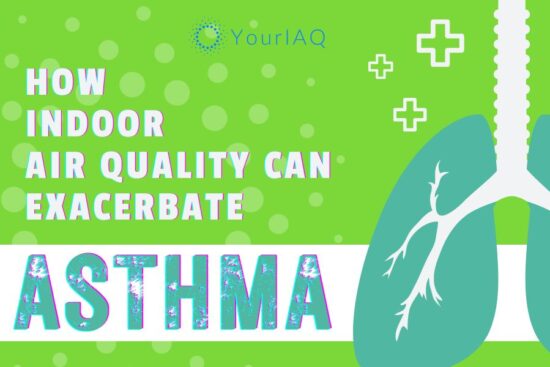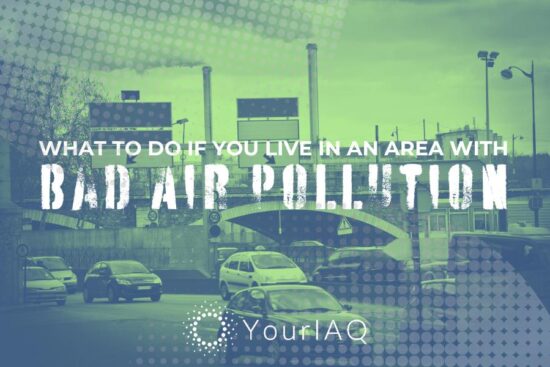
You work hard to keep your home safe and healthy, but sweeping up dust and keeping surfaces clean is only half the battle. Allergens, volatile organic compounds (VOC’s), and other invisible contaminants are a constant threat to your home’s air, making it harmful to breathe and posing risk to your long-term health. In this article, we’ll discuss the importance of indoor air quality to your health and comfort, so you and your loved ones can thrive!
What is “Indoor Air Quality”?
Indoor air quality is a measure of how much pollution is in the air inside a home or building. Air quality directly impacts the health and well-being of indoor occupants and can be affected by a variety of factors, including building design, ventilation, sources of indoor and outdoor pollution, humidity, and the behavior of the people inside.
Impacts on Health
The main reason to care about indoor air quality is because it can have a significant negative impact on your physical well-being.
Poor air quality is a serious issue. It’s been tied to a wide range of health problems—both acute and chronic—and can both exacerbate existing conditions or cause new issues to arise. Indoor air pollution was responsible for an estimated 3.2 million deaths worldwide per year in 2020, including over 237,000 deaths of children under the age of 5 (Source: WHO).
Common health issues associated with air pollution
Perhaps most obviously, pollutants in the air can create serious respiratory problems. Asthma, bronchitis, and emphysema can all be caused or worsened by poor indoor air quality.
Breathing polluted air can also lead to headaches, dizziness, fatigue, reduced cognitive ability, and poor concentration. Serious conditions like coma or convulsions may occur with prolonged exposure to large concentrations of pollutants.
If you have allergies you’ll want to be extra cautious of airborne particles. Dust, pet dander, and mold trapped inside your home can cause allergic reactions ranging in severity and impacting your nose, skin, throat, and eyes. Airborne microorganisms can get deep into your lungs and even enter your bloodstream, where they cause or worsen other problems.
Air quality and serious illness
Even if you feel fine in the moment, your home’s air quality could be affecting your future health outcomes.
Prolonged exposure to poor indoor air quality can lead to a number of fatal conditions. It has been tied to heart disease and lung cancer—two of the leading causes of death in the United States.
Of course, the severity of the health effects listed above vary based on your age, existing health conditions, and the level of exposure you’ve experienced. But no one is completely safe from what lurks in the air. Therefore it’s a good idea to take control of your indoor air quality before it becomes a threat to your health and wellbeing.
Learn how to measure your air quality with IAQ.
Impacts on Comfort
In addition to directly affecting your health, indoor air quality can also have an immediate impact on your comfort in a space.
Poor air quality often leads to odors, stuffy air, and excessive humidity. Spaces where this is especially noticeable likely lack proper ventilation and care, making life unpleasant for its occupants.
In fact, studies link poor indoor air quality with increased absenteeism from school and work, suggesting that in some cases it can be so uncomfortable that people fall behind on their learning and careers.
This problem only worsens when the unhealthy air is in your home, where you spend most of your time. Properly ventilating, using filtration systems, and managing chemicals released into your air are all a must if you’re looking to save yourself from bigger hassles.
Other inconveniences of poor indoor air
Adding to the laundry list of issues are the downstream consequences of living with poor air quality. Aside from potential health concerns, poor breathing is a leading cause of restless sleep. And of course, sleeping poorly makes you tired, frustrated, and lacking focus, which leads to poor performance in everything you want to do.
Poor indoor air quality can also hit your pocketbook. Costs of cleaning and remediation go higher the longer the issue lingers. If air quality issues get bad enough, such as with an unchecked mold infestation, it can impact the resell value of property or lead to a homeowner’s insurance claim.
The importance of indoor air quality
Living in a home with clean, healthy indoor air is essential for a happy life. Unfortunately, air quality issues often go unnoticed, likely due to air being out of sight, out of mind. Air is also free, so we tend to take it for granted. But that’s a mistake!
Ensuring you have the ability to breathe clean, fresh air without the worries of harmful pollutants is paramount for the health of both your mind and body. Thankfully, it’s simple and easy to measure indoor air quality without breaking the bank. Learn more about how IAQ can help you monitor your indoor air environment and give you control of your air quality.







